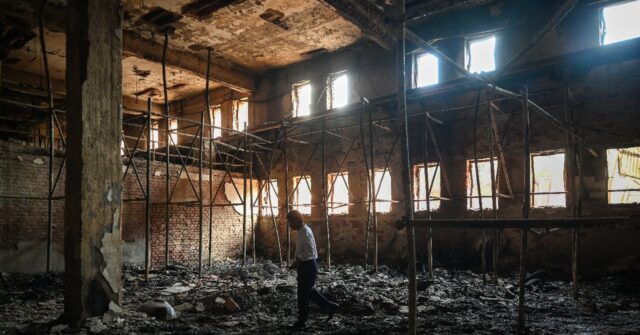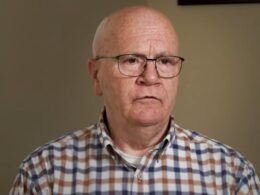Bangladeshi Prime Minister Sheikh Hasina wept on Thursday as she surveyed the destruction wrought by days of deadly unrest, as student leaders weighed the future of the protests that sparked the disorder.
Last week’s violence killed at least 193 people, including several police officers, according to an AFP count of victims reported by police and hospitals, in one of the biggest upheavals of Hasina’s 15-year tenure.
The unrest was precipitated by protests against a public jobs quota scheme that critics say gives preference to allies of Hasina’s ruling party.
Thousands of troops are still patrolling cities and a nationwide internet shutdown remains largely in effect, although clashes have subsided since protest leaders announced a temporary halt to new demonstrations.
Hasina, 76, spent the morning surveying destruction in the capital Dhaka, where the commuter rail network connecting the sprawling megacity of 20 million people was shut down after mob attacks.
“Over 15 years, I’ve built this country,” she told reporters, condemning protesters for damaging city infrastructure. “What didn’t I do for the people?
“Who has benefitted from what we have done?” she said. “Do I ride on the metro? Does the government only ride? Do our ministers only ride? Or is it in fact the general public that rides?”
Pictures released by Hasina’s office showed her flanked by an entourage and weeping at the sight of a vandalised metro station in an outlying Dhaka suburb.
The station was among several government buildings and dozens of police posts torched or vandalised during the unrest.
With calm returning to cities around Bangladesh, Hasina’s government ordered another relaxation to the curfew it imposed at the weekend to allow free movement between 10:00 am and 5:00 pm.
Streets in Dhaka were choked with commuter traffic in the morning, days after ferocious clashes between police and protesters had left them almost deserted.
Banks, government offices and Bangladesh’s economically vital garment factories reopened on Wednesday after they were closed last week.
Student leaders were set to meet later on Thursday to decide whether to again extend their protest moratorium, which is due to expire on Friday.
Students Against Discrimination, the group responsible for organising this month’s rallies, said it expected the government to make some concessions.
“We demand an apology from Prime Minister Sheikh Hasina to the nation for the mass murder of students,” Asif Mahmud, one of the group’s coordinators, told AFP.
“We also want the sacking of the home minister and education minister.”
Youth jobs crisis
Police told AFP they had arrested at least 4,000 people since last week, including 2,500 in Dhaka.
UN rights chief Volker Turk urged Bangladesh to conduct “an impartial, independent and transparent investigation” into the violence.
“We understand that many people were subjected to violent attacks by groups reportedly affiliated with the Government, and no effort was made to protect them,” he said in a statement.
Protests began after the reintroduction in June of a scheme reserving more than half of government jobs for certain candidates, including nearly a third for descendants of veterans from Bangladesh’s independence war.
With around 18 million young people in Bangladesh out of work, according to government figures, the move deeply upset graduates facing an acute jobs crisis.
Critics say the quota is used to stack public jobs with loyalists to Hasina’s Awami League.
The Supreme Court cut the number of reserved jobs on Sunday but fell short of protesters’ demands to scrap the quotas entirely.
Hasina has ruled Bangladesh since 2009 and won her fourth consecutive election in January after a vote without genuine opposition.
Her government is also accused by rights groups of misusing state institutions to entrench its hold on power and stamp out dissent, including the extrajudicial killing of opposition activists.








